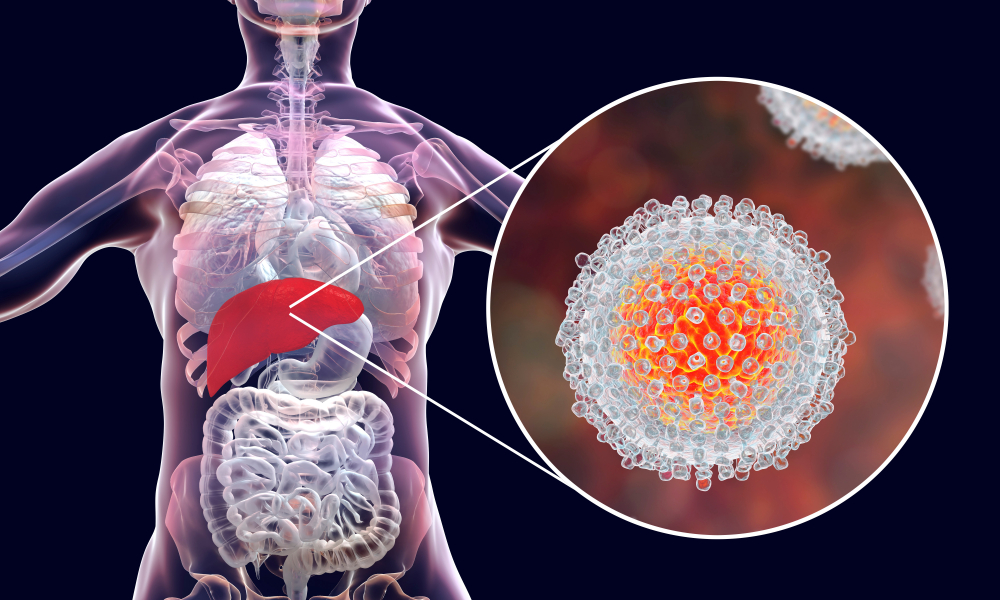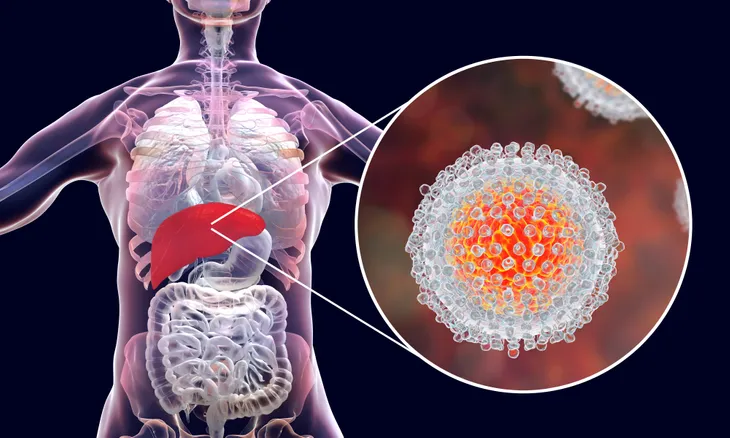Millions of Americans are living with hepatitis C. It is a liver infection caused by the hepatitis C virus (HCV). Even though this condition is now considered to be curable, it’s important we are still aware of the risks, because more often than not, it’s left untreated due to the fact that it doesn’t present any obvious symptoms. Due to its ability to go unnoticed, people don’t often realize they have it until more serious damage is done to the liver.
Technically any person can contract hepatitis C, but there are certain groups of people who are at a higher risk, such as baby boomers (anyone born between 1945 and 1965). The scariest thing about hepatitis C is that it’s difficult to diagnose, because it doesn’t often present with many symptoms. However, if it’s left untreated, it can lead to complications that can be life altering. As a result, it’s important to get diagnosed so that treatment can begin as soon as possible.
Early Signs to Be Aware Of
Before we dive too deep into the symptoms, let’s first distinguish between acute hepatitis and chronic hepatitis. Chronic hepatitis C is a long-term infection. Every infection starts off as acute, but not every infection turns chronic. Some people are able to clear an acute infection on their own, or if it’s caught early enough and treated, it will not develop into a chronic infection. However, for others, an acute hepatitis C infection that is left untreated will develop into a chronic hepatitis C infection.
Chronic hepatitis C is often referred to as a silent killer, because it doesn’t typically present with many symptoms until the infection has severely damaged the liver and begins showing symptoms elsewhere in the body. These symptoms will be similar to the ones associated with liver damage. The symptoms of acute hepatitis are similar, because they also often go unnoticed. If and when they do appear, the Mayo Clinic notes that they will often show up 3-months after acquiring the infection, and they can last anywhere from 2-weeks to 3-months.
The Centers for Disease Control and Prevention (CDC) predicts that 70- to 80-percent of people with hepatitis C will experience no symptoms at all. Of course, this means there are a small percentage of people who do experience symptoms. If symptoms do occur, the following are the most common signs of hepatitis C:
- Dark-colored urine
- Nausea
- Fever
- Fatigue
- Loss of appetite
- Jaundice
- Abdominal pain
- Joint pain
- Clay-colored feces
It’s important to note that the symptoms for men and women are the same, but for an unknown reason, men are typically less likely to be able to clear the acute infection than women. When it comes to men, the infection tends to stay in their body longer and not exhibit many symptoms, if any at all.
How Is It Diagnosed?
Before receiving any treatment for hepatitis C the most important step is to get a proper diagnosis. Remember that it can take anywhere from 6 months to 10 years for the symptoms of hepatitis C to appear. So even if you don’t experience any symptoms, but still fall into the category of someone who has a heightened risk, you should get tested. The screening process is quite simple, it simply requires getting an HCV blood test.
The Mayo Clinic provides an outline of people who should be consider talking to their doctor about getting screened for hepatitis C. This includes:
- Anyone who has injected or inhaled illicit drugs
- Anyone will an abnormal liver function test with no identifiable reason
- If your mother had hepatitis C when she gave birth to you
- Healthcare or emergency workers who have been exposed to blood or accidentally pricked by a needle
- Anyone with hemophilia who was treated for clotting prior to 1987
- If you’ve undergone long-term hemodialysis treatment
- If you received a blood transfusion or organ transplant prior to 1992
- Anyone with an HIV infection
- Anyone who has been in prison
- If you’ve had a sexual partner who was diagnosed with hepatitis C
- If you were born between 1945 and 1965
If the test comes back positive, you may also be required to have additional tests that will measure the quantity of hepatitis C in the blood (viral load), as well as the genotype of the virus. You might also be required to have a biopsy to see how much (if any) of the liver has been damaged. This can be performed with a magnetic resonance elastography (MRE) which is a noninvasive way to biopsy the liver. Another noninvasive, but effective test is a transient elastography which is an ultrasound that transmits vibrations into the liver to measure the speed of their dispersal. You may also have to undergo advanced tests like an MRI, ultrasound, and CT scan.
According to the CDC, the virus can take anywhere from four to 10 weeks to show up in a blood test. So if you’ve recently contracted the virus it might not show up for a few months.
How Is It Treated?
Thankfully, hepatitis C is curable. The CDC writes that 15 to 20-percent of patients with acute hepatitis C are able to completely recover and rid their body of the HCV. People who take longer to get diagnosed will ultimately develop chronic hepatitis C, which is also treatable, depending on whether or not there are any serious complications. For a long time it was treated with weekly injections and oral medications. While this was a great option at the time, it wasn’t practical. According to the Mayo Clinic, many patients weren’t able to keep up with the treatment because of the side effects.
Today, the medicines for hepatitis C is life-changing. It is most commonly treated with antiviral medications that work to clear the virus from the body. This form of treatment usually takes around 12 weeks. There are several different options available now, and each one works differently depending on how they interfere with protein synthesis. But, the end result is the same. Despite the leaps and bounds made in the treatment of hepatitis C, the biggest problem remains finding out who is infected due to the lack of symptoms.
Home Remedies for Hepatitis C
There are a few different home remedies that patients can try to help ease any symptoms they might be feeling from hepatitis C. However, it’s important to note that these remedies should never replace any medication that is prescribed to cure this condition. These remedies will only work to relieve symptoms and promote good health, not cure the virus. The three most effective remedies are the following…
1. Caster Oil: This remedy should be applied directly to the skin over the liver. It will work to reduce inflammation, prevent cell damage, and promote the growth of new healthy liver cells.
2. N-Acetylcysteine (NAC): This is an amino acid that turns into glutathione once it passes through the digestive system. Glutathione is extremely effective because it’s the body’s most powerful antioxidant. Another great characteristic of NAC is that it triggers a viral response when used in combination with antiviral medications.
3. Milk Thistle: This is a common supplement that can be purchased over-the-counter. It’s a useful remedy that is derived from an herb. When taken in supplement form, milk thistle can help strengthen the liver cell walls and help prevent damage.
Be Responsible…
The most responsible thing to do is get tested as soon as possible for the HCV. Anyone who is at a higher risk for contracting hepatitis C should be tested. Should the test come back positive, treatment is necessary right away because this disease can spread through contact with others. It’s also important to reiterate that just because you don’t feel any symptoms, doesn’t mean that you don’t have hepatitis C. This disease can be present in the body and not cause any noticeable symptoms. You could be passing the virus along to others and not even realize it. Since hepatitis C is so difficult to diagnose, regular testing is key. This is the only way to 100-percent confirm that you are not infected.
As we mentioned previously, baby boomers are at a higher risk than others for hepatitis C infection, so it’s even more important for anyone who falls into this category to go get tested, even without any symptoms! Talk to your doctor about having regular blood tests and screenings for hepatitis C so that you’re not at risk for developing more serious complications such as cirrhosis of the liver, liver cancer, or even liver failure.
Similar to most other conditions, we recommend people do their own research. There is tons of great information available online, so try to keep up to date on the latest research. Once you’ve found a few great resources with options for treatment, we recommend comparing three to four options before making a final decision. Doing research online is the easiest and most effective way to get informed on an important topic like hepatitis C. It’s also the most thorough way to really dive deep into a topic and a great way to weigh all the available options.




